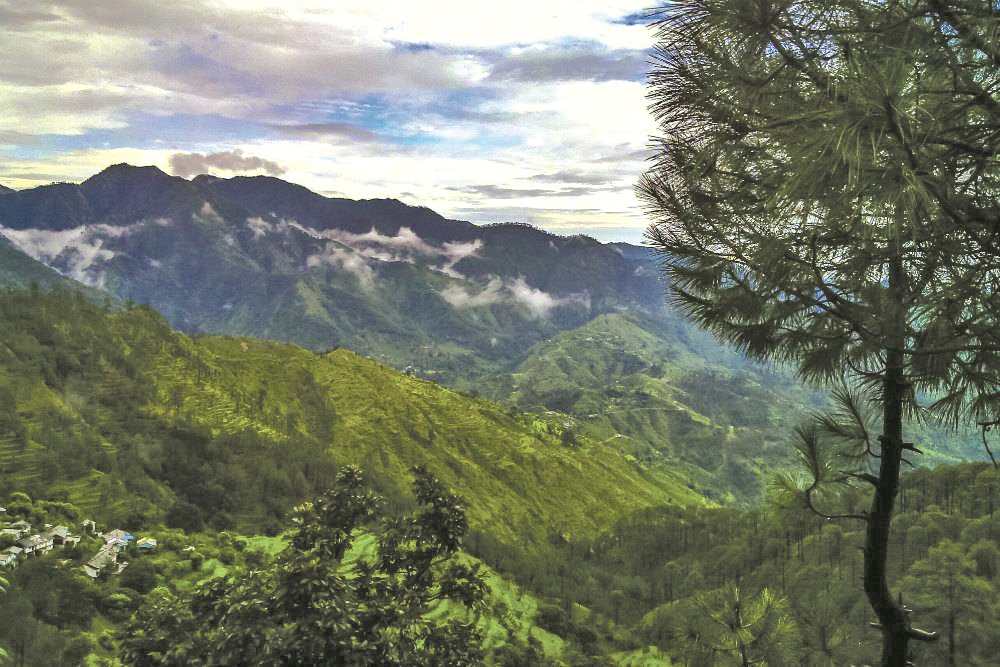
A housing project started by this conglomerate in Chandigarh on cheap farm land bought by a society of MLAs and MPs has run into trouble with the Delhi High Court not clearing it
~By Vipin Pubby in Chandigarh
Over a decade ago, a large number of Punjab MLAs and MPs, cutting across party lines and in a spirit of mutual benefit, executed a lucrative land deal which would have turned them into crorepatis overnight. It was a win-win situation for them with an investment hardly worth the name.
The deal turned sour in 2013 after the Punjab and Haryana High Court intervened following a PIL by concerned citizens. Not happy with the verdict, the elected public representatives moved the apex court. It referred the issue to the Delhi High Court, asking whether proper environment clearances had been taken.
IN JEOPARDY
And recently, the Delhi High Court set aside the permission given to this project and advised the MLAs and the Tata Camelot Company, which was undertaking the township project in Chandigarh, to seek more stringent environment clearances from the centre as the project fell in a highly eco-sensitive zone. This has put the project in serious jeopardy and both, the township society as well as the Tata Company, are claiming that they have suffered huge financial losses.

The deal was executed towards the end of the first term of Captain Amarinder Singh as chief minister. Besides him, members of the society included arch rival and former deputy chief minister Sukhbir Singh Badal.
It all started when the MLAs and a few MPs formed a housing cooperative society. For a society with such influential persons, it was no big deal to purchase a prime piece of land at Kansal, adjoining Chandigarh. It purchased cheap farm land in anticipation of getting the land regularised for a housing society, which was subsequently done. The land nestled between the famous Sukhna Lake and the Shivalik hill ranges.
LUCRATIVE DEAL
Under a deal with the Tatas, which had planned to construct 19 skyscrapers ranging in height from nine to 28 storeys, the society handed over the entire 21.2-acre land to it. The Tata Camelot plan included construction of about 1,800 high-end residential flats and commercial spaces in Kansal village on 53 acres of land. Besides the land belonging to the MLAs’ society, it also struck a deal for 28.7 acres from a defence services retired officers’ society and acquired the balance land from local farmers.

As a quid pro quo, the Tatas promised to pay Rs 82.5 lakh to each member of the society, along with a flat measuring 2,500 sqft. The Company was free to sell off the rest of the flats at whatever rates it fixed for the general public and make its profits. The Company was believed to have entered into a similar deal with the defence society and the private land owners but the details could not be confirmed. The flats to be given to the members of the two societies and the private owners totalled about 300 and the Company was supposed to make profit from selling the remaining flats. Evidently, it would have made a huge pile of money even after giving free flats to the people concerned.
Immediately after the deal was signed, the Tatas made a payment of Rs 33 lakh out of Rs 82.5 lakh promised to each member. The remaining amount was to be paid in two instalments of Rs 24.7 lakh each. After the High Court stayed the construction, the MLAs’ society tried to break off the agreement but the Tatas threw the rule book at them and declined to annul the agreement. The price of land has since skyrocketed in the area, but the society can’t sell off its plot. On top of it, members were made to pay income tax on the amount they received.
ECOLOGICAL DAMAGE
The construction of the project was challenged, among others by Sarin Memorial Legal Aid Foundation and advocate Alok Jagga. Senior advocate and former Advocate-General Manmohan Sarin had argued that the project would damage the ecology of the area as it was in the catchment area of Sukhna Lake. Besides, he said that the proposed high-rises violated the Edict of Chandigarh which prohibits construction on the north and east side of the Union Territory.

A Delhi High Court bench comprising Chief Justice G Rohini and Justice Rajiv Sahai Endlaw cancelled the clearances given to the project by the Punjab government and Nayagaon village panchayat. They held that these were not in consonance with environmental and town planning laws, rules and regulations. It asked the Company to approach the centre for fresh environmental and other clearances required for projects falling under the “A” category.
Given the stricter norms for environmental clearances now and the National Green Tribunal keeping a hawk’s eye on any damage to the environment, the project appears to heading nowhere.

